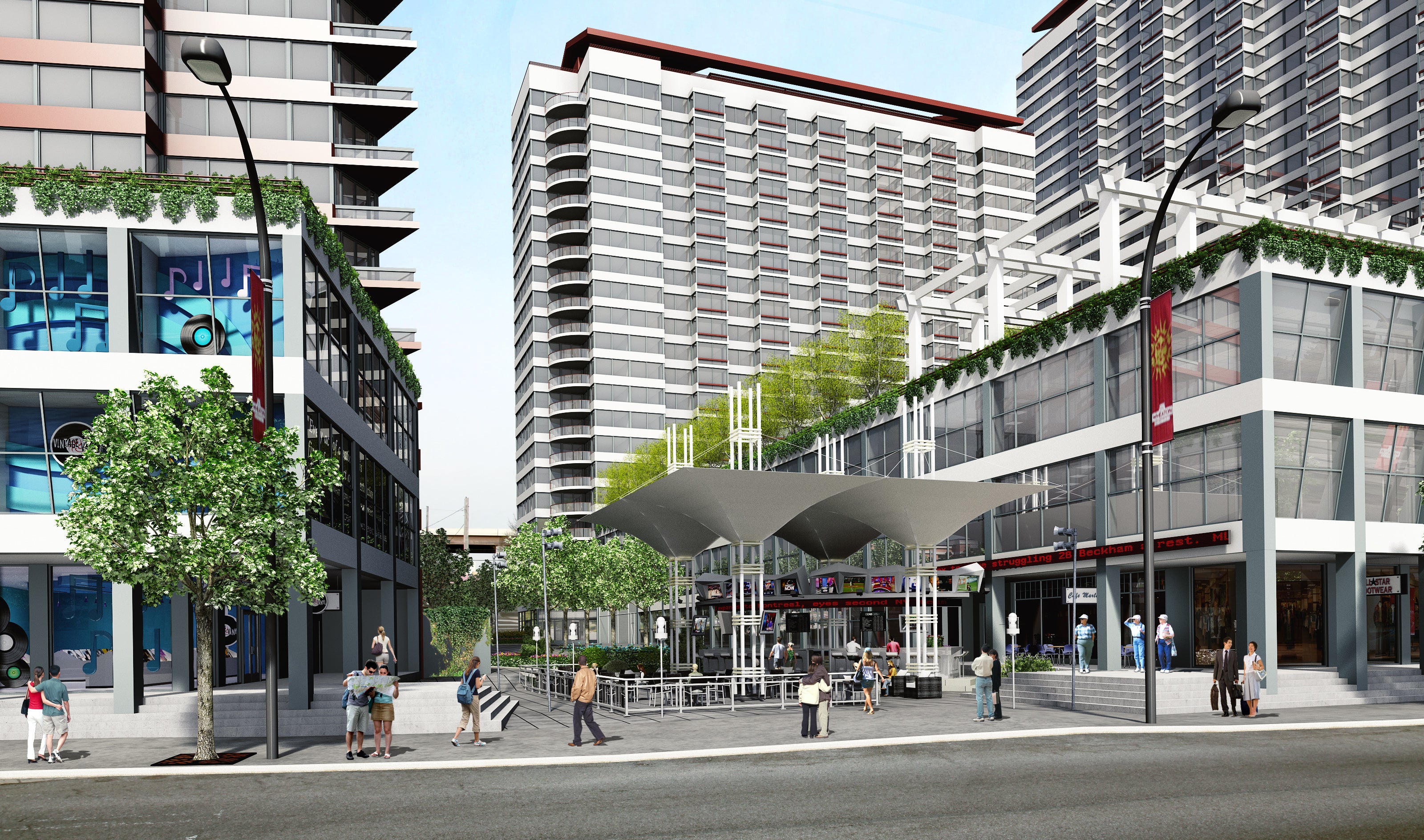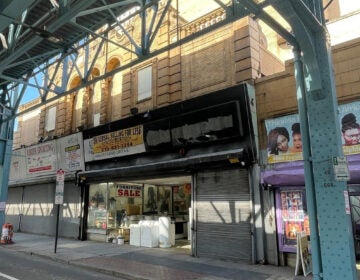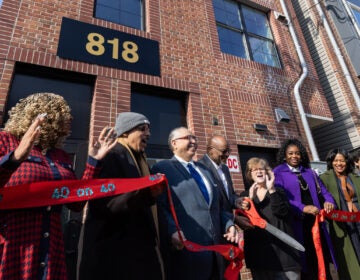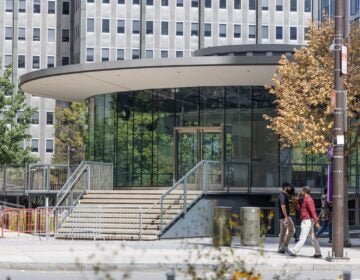August 4: Our new $70M budget hole | More parking variances from ZBA | Useless sharrows | PUC wants to curb rooftop solar

A new contract award for police has opened up a $70 million hole in the city budget. For context, Philadelphia’s budget is about $4.5 billion, but only a small part of that is discretionary.
Flouting the 2012 zoning code’s policy on above-ground parking garages in CMX-4 zones, the ZBA handed an above-ground parking variance to the Renaissance Plaza project at Callowhill and the Delaware river. Developers argued the orientation of the floodplain and the water table meant they needed to build the hundreds of parking spaces above ground – though this could just as easily be an argument for building very little parking on a site planners have targeted for walkable, bikeable development.
The city’s campaign to convince us that “sharrows” are an acceptable substitute for more politically-contentious protected bike lanes continues to get a surprisingly uncritical reception in local media, with this friendly treatment from Randy LoBasso being the latest example. For those keeping score, sharrows are good for guiding cyclists out of the door zone, but Geoff Kees Thompson at This Old City reminds us that the research shows they don’t do anything to slow traffic, and they don’t do anything to grow bicycle ridership among the “interested by concerned” group of cyclists Philly is hoping will use the bike share network.
The state Public Utility Commission wants to limit “net metering” for households’ rooftop solar arrays. Under the proposed rule, the amount of energy home solar producers could sell back to the grid couldn’t exceed 110% of the household’s annual energy consumption. Utilities have been lobbying furiously at the state level nationwide against net metering, warning darkly of a “death spiral” for the traditional utility business model.
And speaking of lobbying furiously, the traditional taxi industry has been crushing Uber and Lyft on lobbying expenditures 3500 to 1. “This massive discrepancy in political giving may also explain why, since the start of 2014, at least 12 states and the District of Columbia have introduced new regulations aimed to limit these popular ride-sharing applications, according to a review of legislation from the Sunlight Foundation’s Open States project.”
There are some positive early signs that the new Convention Center work rules are giving the Great Wall of Pennsylvania a competitive edge in attracting conventions to the region. To get a sense of why this matters for the city economy, Newsworks had an interesting item a few weeks ago on how a lagging Convention Center has been dragging on the hotel market too, which ripples outward through the rest of the city’s service economy.
WHYY is your source for fact-based, in-depth journalism and information. As a nonprofit organization, we rely on financial support from readers like you. Please give today.






